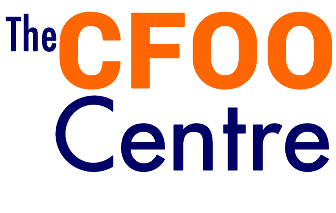Private equity investments in East Africa have in the last 3 to 4 years increasingly become attractive financing options for family businesses. Getting into a PE deal will definitely reduce the family owners unlimited influence on the business. Sometimes this may be good for the organisation because the family owner(s) may be operating in a dream-like state, detrimental to the organisation in the medium to long term. There will also most definitely be loss of control by family members. Having been through a major private equity deal recently, we will give you our view on the reasons, up’s and down’s of PE investors in this three-part article.
Reasons, why organisations opt for a PE
This part of our article discusses the reasons why family owned business would consider a PE investment.
1.Crisis in the organisation – There is need for equity capital because the organisation is constantly breaching bank and other financial institutions covenants.
2.Growth – The family has ambitious long-term growth plans and needs finance to induce the growth.
3.Succession – The family faces succession problems and other options such as an IPO, listing etc. are not feasible and practical at the moment.
4.Retirement and family feuds – A family shareholder wants to retire/get out and the balance of the family members want to retain control over the company. They may not have the funds necessary to buy out the shareholder and opt for a PE to bridge the deficit.
5.Multiple families – There may be two family shareholders each owning 50% of the company and one family wants to exit and the other family would like to gain full control of the organisation but is not in place to obtain enough debt financing to purchase the shares of the family disposing off its shareholding.
6.Wealth tied up – The family has a large portion of their private wealth tied up in the organisation and want to diversify their risk.
7.Professionalism and international experience – The family has realised that in order to grow the business they need professional and international expertise without employing full time professionals.
8.Growth potential – The organisation is in a sector which has extremely great growth potential and needs capital for future growth.
9.Stagnation – The organisation has come to a point that it needs an external partner to grow further. The family may be considering going public and/or eventually selling to a larger business or even to a multinational and needs to up its game. It therefore needs the PE for exposure and growth before the eventual exit.
10.Capital base – The family organisation wants to strengthen its capital base with the PE investment.
11.Silent partners – The founder set up the organisation with friends as silent partners and after say 15 to 20 years in operations the friends want to terminate their silent involvement and the founder needs capital to repay them.
12.Expansion – The founder after having being successful in one country (say Kenya), needs funds to set up and expand the business into other parts of Africa (say Ethiopia).
13.Increasing value – The family members deduce that if they sold off 100% of their company today, they would be able to get 1 million dollars for the business. But, if they sold 75% after say 3 or 4 years after working with and using private equity investment, they would probably be able to get 3 million dollars.
Debt vs Equity
The quote we often hear is that equity is always more expensive than debt. And this is true. Although it seems un-constructive, there are instances where it is profitable for a business to incur long-term debt rather than equity. If the organisation can earn a higher rate of return by borrowing and re-investing the same to earn higher dividends/returns, than the interest rate at which the money was borrowed, it is actually profitable for the organisation to borrow the money. The costs vs. benefits can be worked out quite easily.
Although debt is commonly considered to be negative and bad for organisations, moderate levels of debt are an important part of financing growth and development. When money is borrowed to make investments that create new opportunities, this can enable the organisation to grow in profitability. However, organisations must be careful not to borrow too heavily. Those that take on too much debt and misuse the same, will not be able to grow and this borrowing may lead the organisation to the point of insolvency. The CFO and Controllers must always calculate the proper balance between maintaining appropriate levels of assets and liabilities.
The CFOO Centre Limited can act as your advisory partner
Because we have been part of core private equity deals. We can offer you first hand advise and work with you on the process, due diligence, pre-equity and post-equity valuations, the multiple, the pro’s and con’s, the do’s and the don’ts, the costs vs. the benefits and what you should and shouldn’t expect from such a deal.


